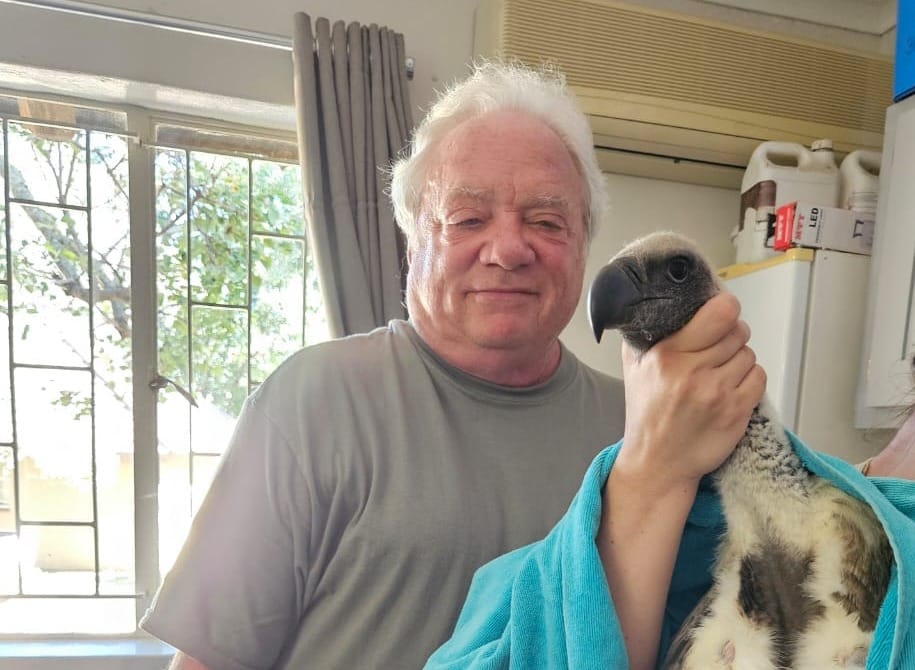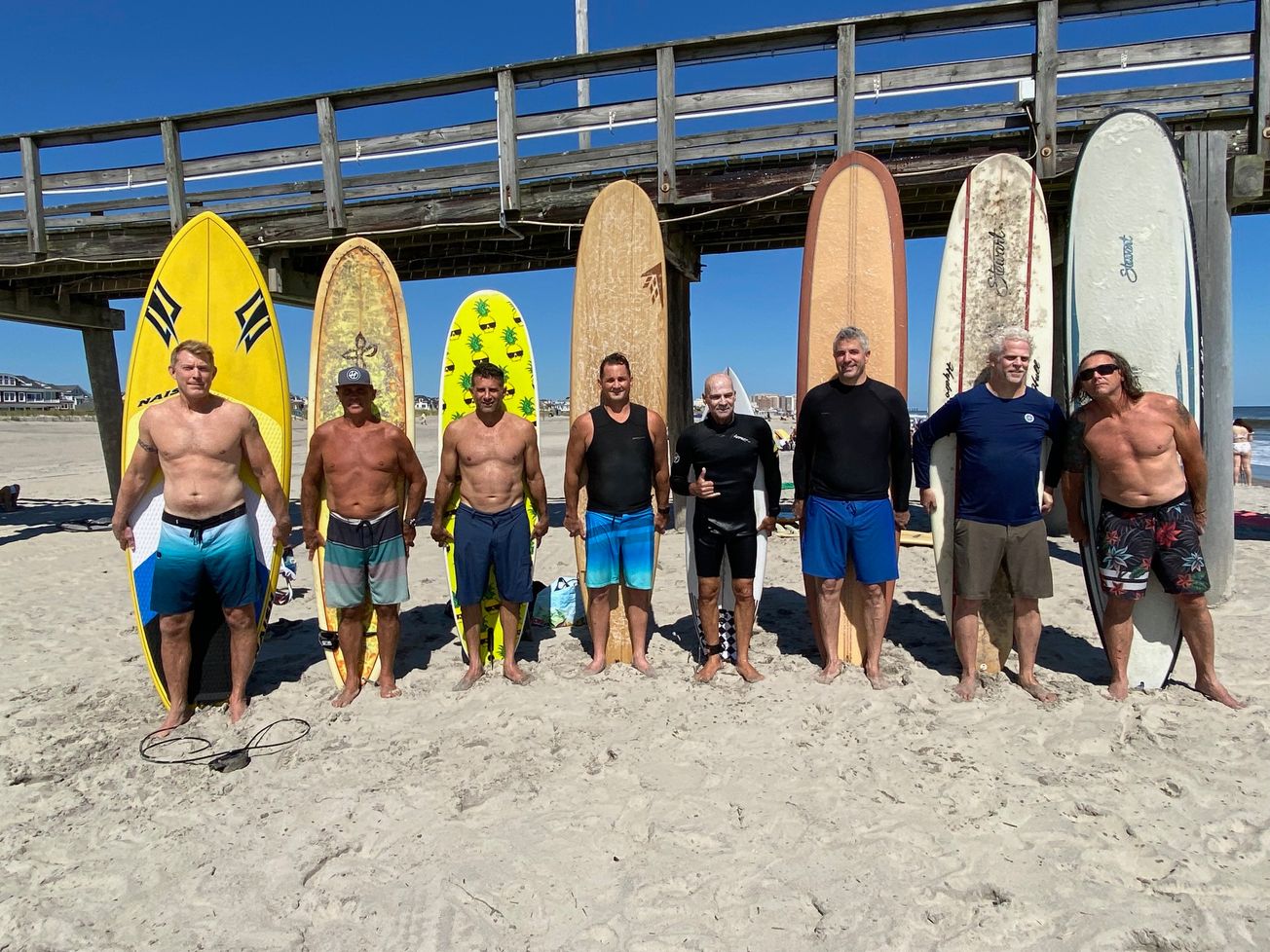If you are a pet owner and live in Atlantic County, perhaps you have either heard of or taken your pets to Dr. Mark Newkirk or the offices he founded in Margate and Egg Harbor Township. While the Margate location closed in the early 2000s, Newkirk Family Veterinarians in Egg Harbor Township took its place. Even though Dr. Newkirk retired from working at his office a few years ago, he has not quite stopped his veterinarian practices. Now that he no longer works at his office in EHT, he travels out of the country to help endangered animals and abandoned pets with organizations like World Vets and the African Conservation Experience. He has recently visited Africa, Russia, Ukraine, and Thailand.
Dr. Newkirk has been working with animals for nearly his entire life. When he was just 14 years old, he got a job at the Margate Animal Hospital, which he eventually took over. During his college years, as he stated, “...I wanted to actually be a zoo veterinarian back in the 1980s and did an externship at the Philadelphia Zoo. The problem in those days was zoos were designed for people and not for animals.” Nowadays, zoos are equipped with veterinarians for animal rehabilitation centers, but back then, zoos cared more about paying customers than the animals on display for their entertainment. Since no zoo offered what Dr. Newkirk was looking for, he returned to the Margate Animal Hospital. Now that he is retired, he returned to his passion as he said, “...I have the time, and… There are many volunteer programs in Africa and worldwide to work with these types of animals. So I kind of went back to my first love.”
Dr. Newkirk travels out of the country for about four months each year to help animals. In South Africa, he has worked with various animal species. His favorites to work with are big cats working like lions and cheetahs. In South Africa, there are lion and cheetah rescues and reserves. These big cats have had their land encroached on by humans, who have turned much of the country into farmland. Many remaining natural areas are fenced off, which cannot always contain them. Now, there is an issue of lions and cheetahs being shot by farmers who are trying to protect their livestock. Dr. Newkirk has also worked with elephants. In Thailand, he worked at an elephant rescue center and conservation reserve. In South Africa, he helped organizations handle the issue of overpopulation. While endangered, they overrun Kruger National Park and find their way onto farmland, often destroying crops. Dr. Newkirk has also volunteered at Hluhuwe-iMfolozi Park with research on wild dogs. He worked with researchers and veterinarians to study and help all different kinds of African Wild Dogs. He was there when the pack was getting so big that there was not enough prey. So Dr. Newkirk helped split the pack and transfer some dogs to other African parks.
On top of helping organizations keep lion, cheetah, elephant, and wild dog populations a healthy size, Dr. Newkirk has also worked with rhinoceroses during his time in Africa. He has joined the fight against poaching rhinos. Like elephant husks, rhino horns are valuable for their ivory. He also spent a lot of time helping nurse baby rhinos who lost their mothers to poaching. As baby rhinos must be nursed for up to 18 months, Dr. Newkirk explained how they need lots of attention: “...we had a six-week-old baby hippopotamus. Well, she needed milk every four hours. So you need volunteers to get up in the middle of the night, you know, to feed, feed these animals…”
Poaching has become such an issue for South Africa’s rhino population that many parks and wildlife organizations there have resorted to dehorning them. Since the horns are the only part of the rhino that poachers seek, a dehorned rhino will not be poached. However, this has sparked some discourse, as Dr. Newkirk explained, “...this is a big controversy now because we are concerned that it changes their behaviors. But the other side is, well, they’re alive… Also, the horn grows back. So you actually then have to, every two to three years, do it again.” For rhinos and other endangered animals, human activity has become the reason for the threat of their extinction. So, to survive on a human-dominated planet, they must adapt.
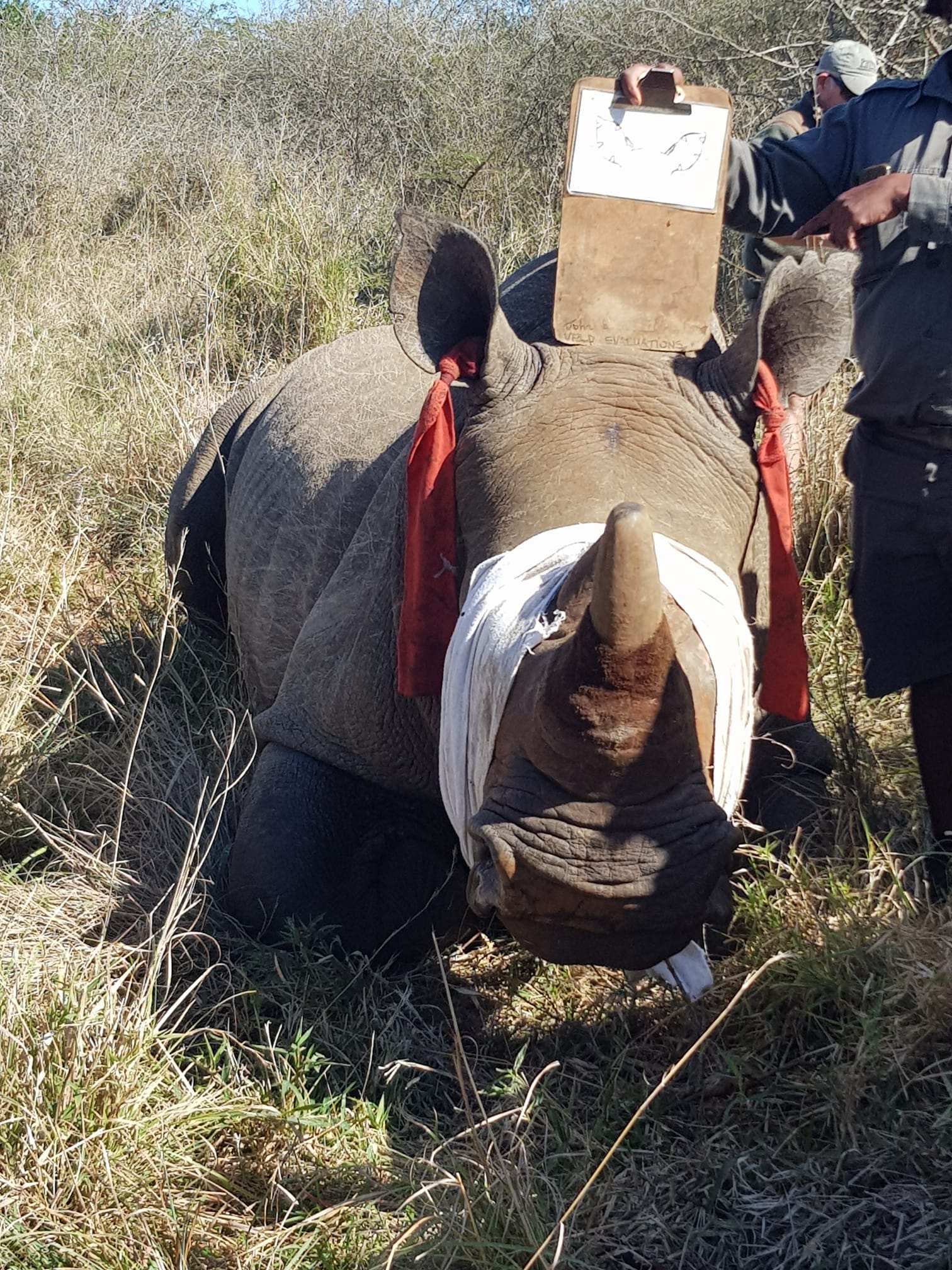
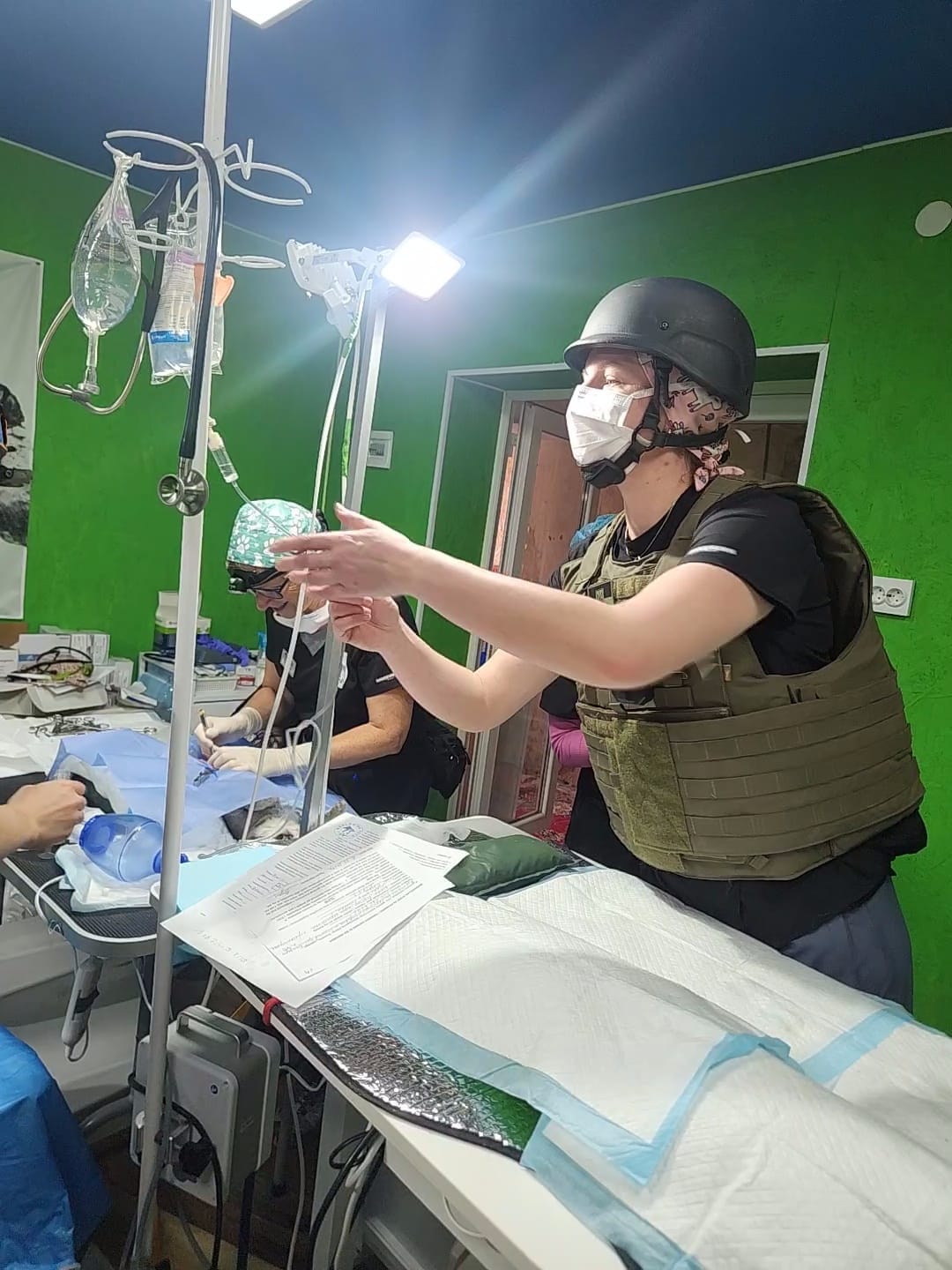
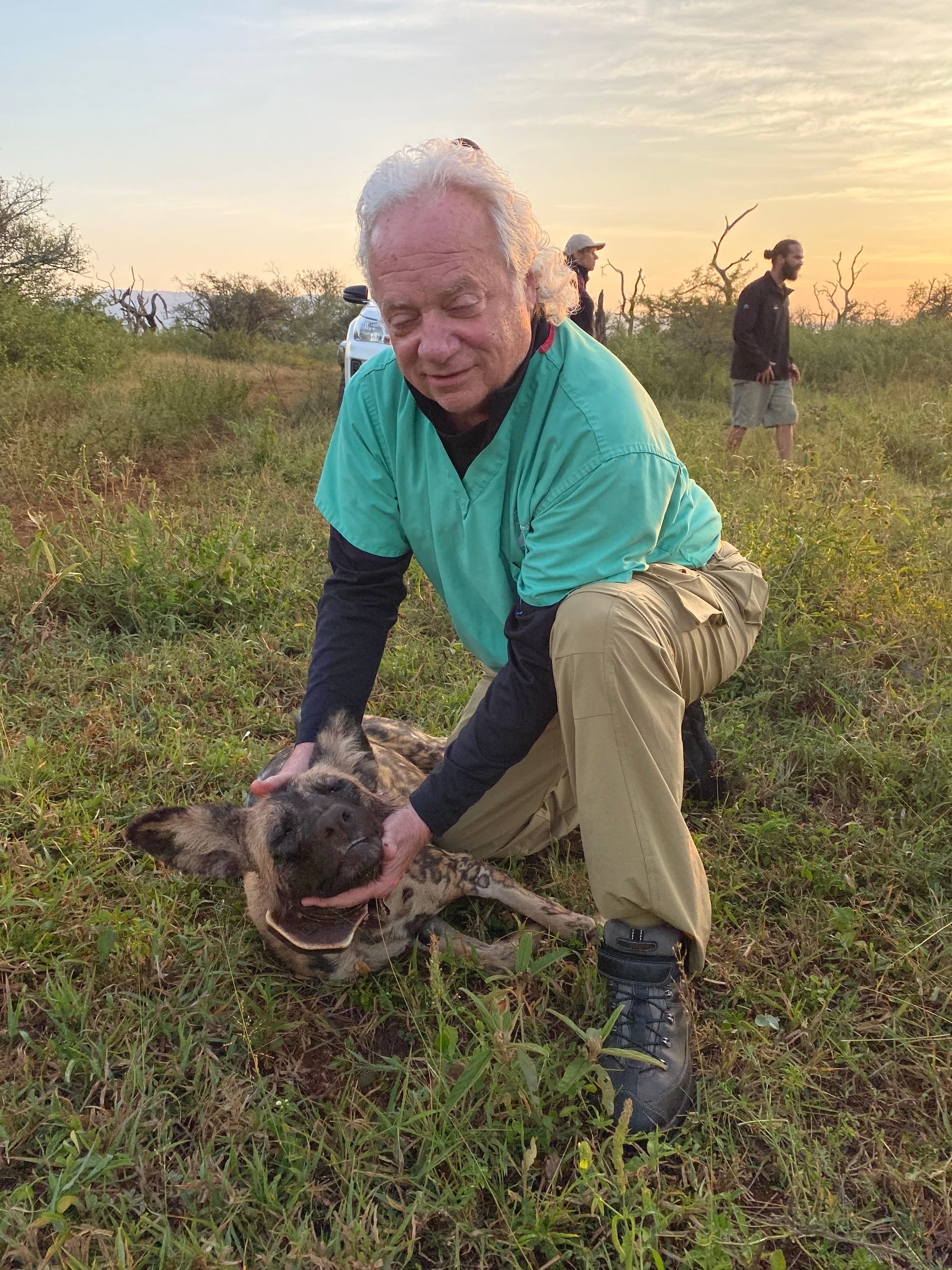
Animals are even affected by human tragedies. Dr. Newkirk’s trip to Russia and Ukraine was sometime after Russia’s initial attacks, meaning he was in the Ukraine amidst the war. For those of us who were born and raised in the U.S., we have never had to think of what would happen to pets if war was at our doorsteps. But as Dr. Newkirk stated, “...when people fled to the western part of Ukraine to get on trains to go to Romania or Poland, many of them brought their animals, but the trains were so crowded that the officials said, ‘No, you can't bring them…’ You've traveled all this way, and now you have to dump your animal… and all these strays have just been breeding, and… there have been disease outbreaks.” For this reason, during his time in Ukraine, Dr. Newkirk worked with other veterinarians to spay as many stray animals as they could. This way, they are less likely to spread rabies and other diseases.
The organizations that Dr. Newkirk helps out at are all nonprofit. If you feel inspired but need a veterinarian, research, or animal behavioralist background, there are still ways to help. Some positions involve feeding or watching the animals if you can travel. There are also bracelets that you can buy, both online and in various stores all over, that allow you to track an animal of your choice. A donation to a wildlife organization will be made for every bracelet purchased. You can also donate online.
To learn more about and to donate to World Vets, visit their website at https://worldvets.org/
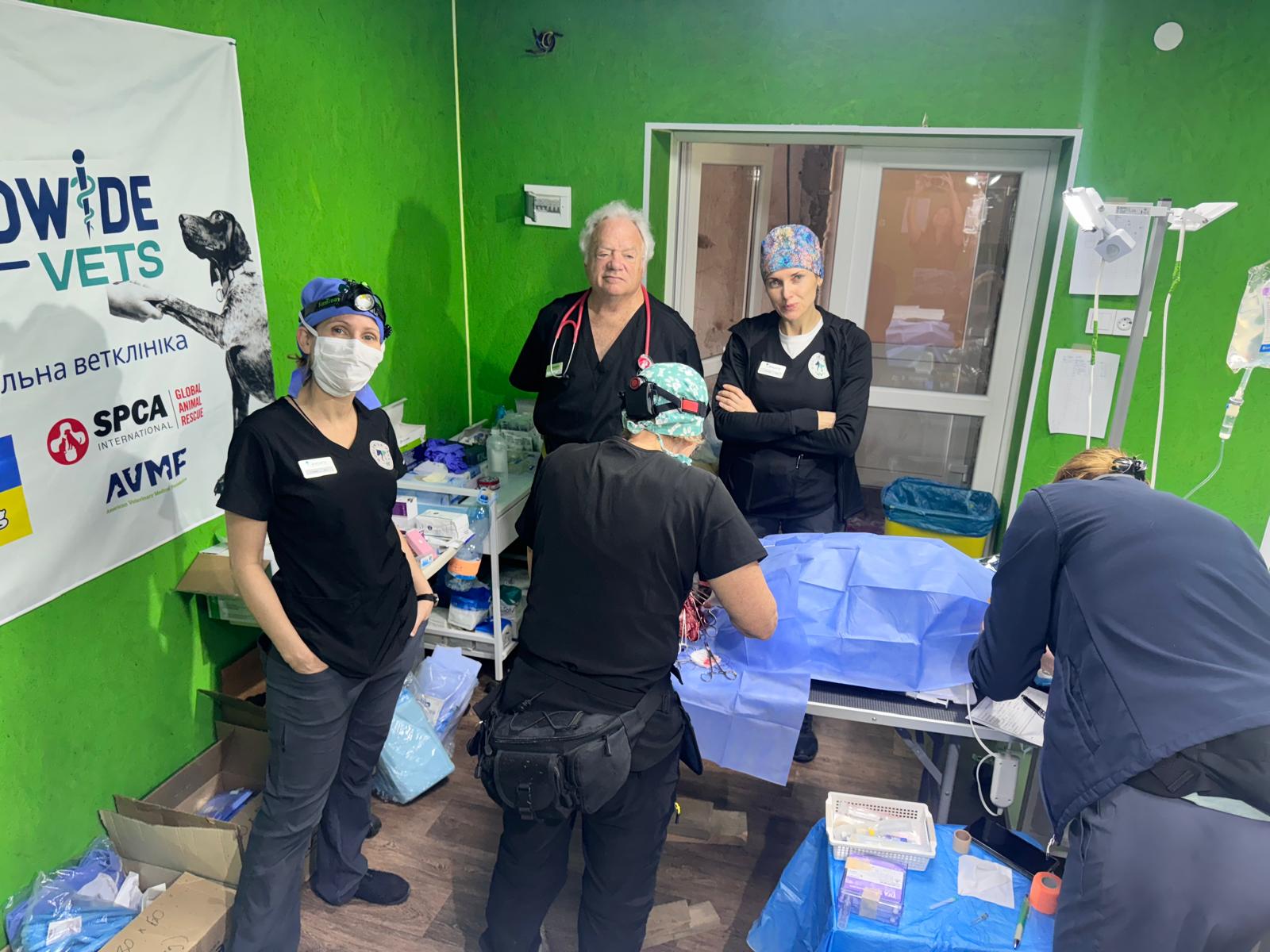
To learn more about and to donate to African Conservation Experience, visit their website at https://www.conservationafrica.net

